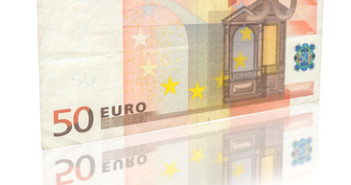EUR/USD continues to remain under pressure following last week’s release of weak GDP numbers out of the Eurozone. Growth rates throughout the Eurozone declined, and fell below market expectations. In the US, the trading week wrapped up on a high note, as consumer confidence and manufacturing data beat the forecast. The G-20 wrapped up its meeting in Moscow, and as expected, issued a mild statement about its concern over currency exchange rates. On Monday, Eurozone Current Account disappointed, coming in well short of the estimate. The markets will be all ears as ECB head Mario Draghi testifies before the European Parliament’s Economic and Monetary Committee in Brussels. The US markets are closed today for Presidents Day.Â
EUR/USD Technical
- Asian session: Euro/dollar was uneventful, as the pair touched a low of 1.3326, and consolidated at 1.3333. The pair is unchanged in the European session.
- Current range: 1.3290 to 1.3360.
Further levels in both directions:Â 
 Â
Â













- Below: 1.3290, 1.3255 , 1.3170, 1.3130, 1.3110, 1.3030, 1.30 and 1.2960.
- Above: 1.3360, 1.34, 1.3480, 1.3588, 1.3690, 1.3740, 1.3860, 1.3915 and 1.40.
- 1.3290 is providing support. 1.3255 is the next support level.
- 1.3360 is providing weak resistance. 1.34 is stronger.
Euro/dollar under pressure over recession concerns – click on the graph to enlarge.
EUR/USD Fundamentals
- 9:00 Eurozone Current Account. Exp. 15.3B. Actual 13.9B.
- 14:30 ECB President Draghi Speaks to European Parliament’s Economic and Monetary Committee.
For more events and lines, see the EUR/USD
EUR/USD Sentiment
- Recession Concerns Weigh on Euro: The high-flying euro took a tumble late last week, after Q4 GDP releases out of the major Eurozone members all pointed to contraction. Germany, France and Italy all recorded declines, and all three readings were below the market estimate. The news was no better from the Eurozone economy, which also posted a sharp drop in its GDP. The ECB, which has been sounding optimistic about a turnaround later in the year, is predicting that the Eurozone economy will shrink by 0.3% in 2013. The euro, which looked invincible in January, has crashed back to earth, losing about three cents in February. If additional indicators confirm that the Eurozone is mired in a recession, we can expect the euro to lose more ground.
- US consumer confidence, manufacturing data shines: US indicators looked sharp on Friday, as Preliminary UoM Consumer Sentiment and the Empire State Manufacturing Index easily beat their respective estimates. Consumer Sentiment rose to 76.3 points, exceeding the estimate of 74.8 points. The Manufacturing Index jumped 10 points, well above the forecast of -2.1 points. The news was particularly positive, as both indicators had been struggling in recent releases. If US data continues to impress the markets, we could see the dollar post further gains against the euro.
- G-20 issues mild currency statement: The G20 wrapped up a two-day meeting in Moscow on the weekend. The talks were attended by finance ministers and central bank governors, and as expected, the final statement addressed the recent volatility in exchange rates. The leaders pledged not to “target our exchange rates for competitive purposesâ€, and to move more rapidly to market-determined exchange rate systems. The G-20 statement was careful to avoid mentioning Japan, which has come under severe criticism for policies which have led to a sharp decline in the value of the yen. With regard to the Eurozone, the G-20 added that more action was needed to continue building a stronger economic and monetary union.
- Saxo Bank CEO pessimistic about Euro: The euro has had a strong 2013, despite economic contraction in the major Eurozone economies and forecasts that the Euroozone economy will shrink in 2013. So why is the euro doing so well if the eurozone is such a mess? According to Lars Seier Christensen, CEO of the Danish Saxo Bank, the euro has received strong backing for political reasons, not for economic ones. Christensen stated that this chasm between economic reality and political interests cannot survive in the long term, and drastic action will have to be taken if the euro is to survive.



